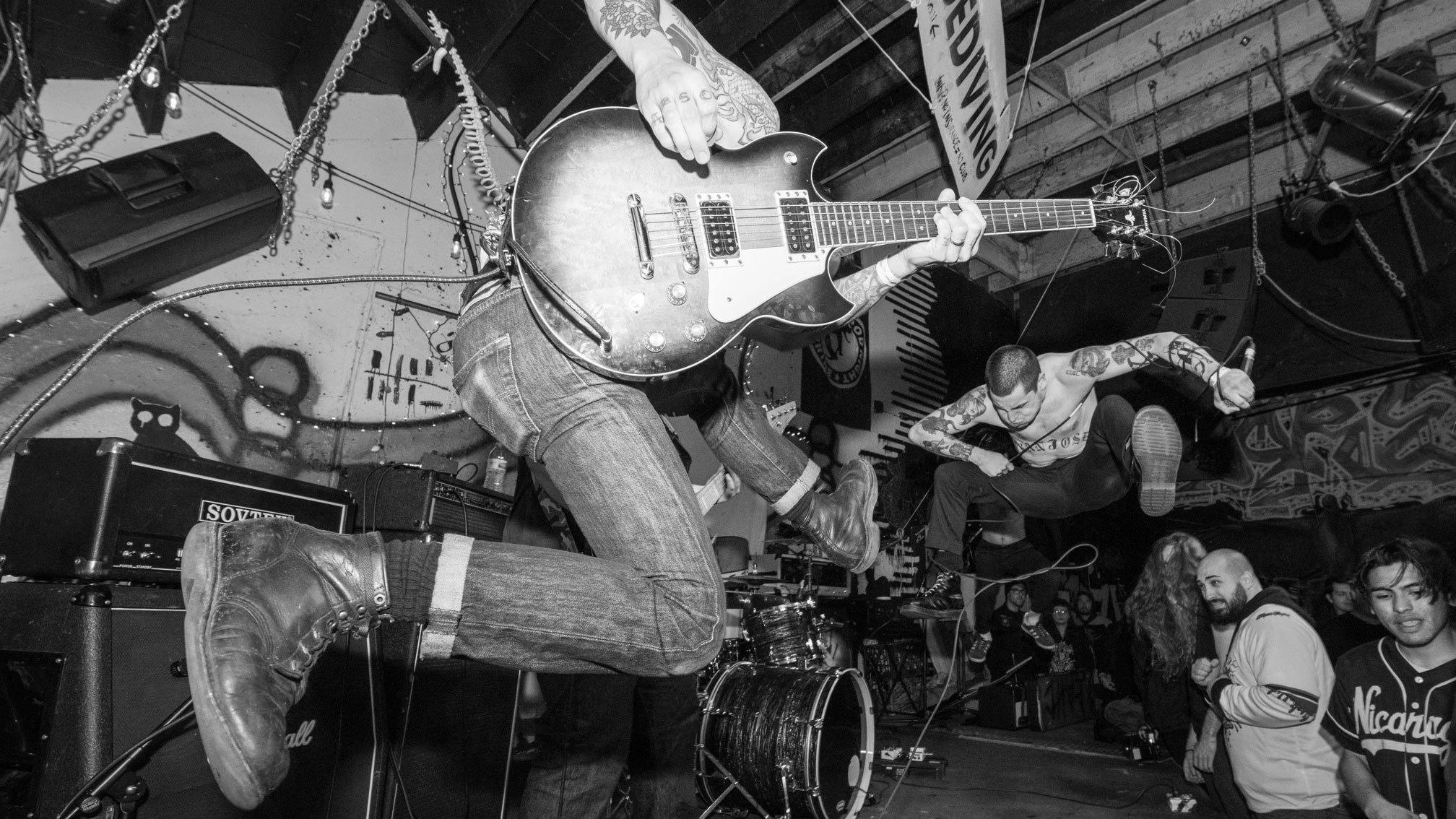If there’s one call we generally don’t get to make ourselves, it’s how things end. It’s only human, then, to fixate on when the curtain might fall, to table all those loose ends and might-have-beens. But it’s something most bands don’t consider until their time is almost up – there are more ruptures and slow marches into obsolescence than there are neat and tidy farewells.
In a few months Gulch will stop existing. The idea is that the short-lived Bay Area hardcore greats will go out on their own terms, at the peak of their powers, and with their legacy intact. It’s a hard-headed call, certainly a gutting one for fans who will never see them play live, but it’s not without a sense of grim romance. This band you love, this shirtless, black jeans-clad, gut-churning band, will never suck – it’s a case of play fast, die young, leave a gnarly-looking corpse behind.
“Gulch was straight-up raw, untamed aggression,” says LURK’s Kevin Kiley, fresh from playing their last Chicago show with them a few weeks ago. “They were able to bring a lot of attention to the hardcore and punk community as a whole, and the way they carried themselves in such a humble DIY spirit even after gaining so much hype is admirable. I think going out on top with a handful of special shows is the perfect way for them to end it.”
So, why don’t more bands do it? Probably because it’s not easy to say goodbye to something you love, especially if that something has even the remotest shot at making you some money. But in hardcore, where making cash is often a pipe dream or beside the point, it’s long been a badge of honour to get out while you’re still hot: see everyone from Minor Threat, and a deep tranche of the Dischord set, to most of New York’s foundational bands. Appropriately, Gulch are taking their leave right on the cusp of things going one way or the other. Their next record would arrive with a hellacious, perhaps stifling, amount of expectation attached to it, and that’s a fact that they’ve seemed cognisant of for a while.
